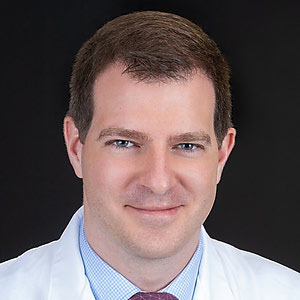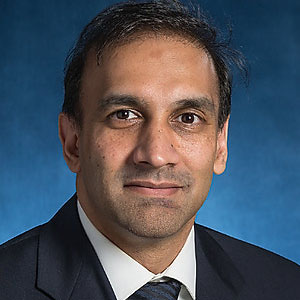
Three Johns Hopkins professors and their research teams have received grants through the Bisciotti Foundation Translational Fund.
Established with a large multiyear gift from the Stephen and Renee Bisciotti Foundation, the fund provides $300,000 annually in seed money to advance Johns Hopkins discoveries on a commercial path. Recipients are awarded $25,000 to $100,000 to conduct their work for up to nine months.
For this year’s funding round, 19 applications were submitted. Five finalists presented their work Jan. 26 to a panel of researchers, scientists and investors.
Each applicant has made an invention report to Johns Hopkins Technology Ventures (JHTV). For the first time, all three Bisciotti awards are for therapeutics projects, says Brian Stansky, senior director of FastForward, JHTV’s venture creation program.
“Dr. Coller and Dr. Konig are working on leading edge developments in their respective fields, while Dr. Rosario’s work addresses the need for COVID vaccines that are effective and enduring,” says Stansky. “Thanks to the generosity of the Bisciotti Foundation, all three faculty members received a meaningful boost to their scientific and commercialization efforts.”
Applications for another translational fund, the Louis B. Thalheimer Fund for Translational Research, are due April 16.
The following researchers and their projects received the Bisciotti Foundation Translational Fund grants.
Development of an mRNA Booster for the Treatment of Haploinsufficiency Disorders

Jeff Coller, Ph.D.
Principal investigator: Jeff Coller, Ph.D., Bloomberg Distinguished Professor of RNA Biology and Therapeutics, Professor of Molecular Biology and Genetics
The pitch: mRNA booster treats various disorders resulting from decreased mRNA expression.
Patients living with haploinsufficiency disorders produce half the amount of protein needed to live healthy lives. There are more than 300 known haploinsufficiency disorders, with no gene therapy approved by the Food and Drug Administration.
Jeff Coller developed a new gene therapy candidate for treatment of haploinsufficiency disorders: an mRNA booster that binds to mRNA and enhances the normal transcript’s translation, doubling protein output. The mRNA booster can be used to treat and reverse disorders resulting from a decrease in mRNA expression, and it has applications in treating other diseases.
Johns Hopkins Technology Ventures (JHTV) is pursuing patent protection for the technology. The Bisciotti Fund grant will be used for developing the mRNA booster and testing the efficacy in mouse models to advance the technology toward applications in the human body.
Chimeric Autoantigen-T Cell Receptor (CATCR) T Cell Therapies for the Treatment of Autoimmune Diseases

Maximilian Konig
Principal investigator: Maximilian Konig, Assistant Professor of Medicine, Division of Rheumatology; Ludwig Center for Cancer Genetics and Therapeutics
The pitch: Engineered T-cell therapies to treat and prevent autoimmune diseases without increasing infection risk
CD19-targeted chimeric antigen receptor (CAR)-T cell therapies have transformed the treatment of cancer and recently demonstrated their potential as treatment options for patients with refractory systemic lupus erythematosus (SLE) to achieve complete disease remission. However, CD19-CAR-T cell use for patients with autoimmune diseases poses a significant risk of infection.
Maximilian Konig and his team have developed a new precision cellular therapy — the use of chimeric autoantigen-T cell receptor (CATCR)-T cells — to selectively target disease-causing B cells. This precision immunotherapy may treat and prevent autoimmune disease without increasing the risk of infection, a primary cause of death among patients treated with current immunosuppressive drugs.
JHTV is working with Konig and co-investigators at the Ludwig Center to patent the technology. The Bisciotti Foundation Translational Fund award will enable the team to fine-tune CATCRs, the unique binding receptors that confer this new precise targeting ability, to recognize self-reactive B cells in other autoimmune diseases. Once the precision therapies are optimized and tested in humanized models, Konig hopes to pursue patient trials.
Pre-clinical Testing of a Pan-Coronavirus T Cell Vaccine

Maxim Rosario
Principal investigator: Maxim Rosario, Assistant Professor of Pathology
The pitch: Developing COVID-19 T cell vaccine provides maximum protection against new coronavirus strains.
Antibody-inducing vaccines targeting the original Wuhan strain have greatly mitigated the global SARS-CoV-2 pandemic. However, as the number of mutations in the receptor-binding domain and other regions of the spike protein grows, current antibody-based vaccines are becoming less effective.
Maxim Rosario’s project is developing a new T-cell vaccine with the potential for broad protection against coronavirus infections, including new strains of SARS-CoV-2 as well as future pandemics of other coronaviruses. The goal of this technology is to create a pan-coronavirus T cell vaccine that targets “conserved” regions of the viral genome to provide maximum protection against the most pathogenic coronaviruses. Upon infection, antigen expressing cells absorb, cut up and express proteins from infecting virus on their surface. T cells recognize the presented antigen and mount a specific immune response.
The Bisciotti Fund grant will be used to complete challenge studies of the vaccine, trial combinations and further studies to determine immunogenicity. The next step is to take the results to vaccine manufacturers and government agencies for licensing.